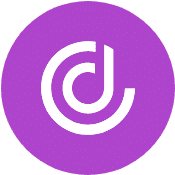CPQ Certification
Table of Contents
Table of Contents
What is CPQ Certification?
CPQ certification proves that a person knows how to use CPQ software to configure products, set prices, and create sales quotes automatically. It works by testing knowledge of product bundling, discount rules, and approval workflows within Configure, Price, Quote solutions. Businesses value this certification because it helps guarantee accurate pricing, speeds up the sales process, and reduces quoting errors.
Synonyms
- CPQ Accreditation
- CPQ Credential
Types of CPQ Certifications
CPQ certifications vary based on expertise level and job role, covering everything from daily system use to advanced implementation and integration. Each certification aligns with specific responsibilities within sales, operations, and consulting.
End-User Accreditation
Designed for sales professionals and frontline users, this certification focuses on product configuration, pricing adjustments, and quote generation. It helps users navigate CPQ software efficiently to create accurate and compliant quotes.
Administrator Certification
Aimed at those responsible for managing CPQ platforms, this certification covers system setup, customization, and ongoing maintenance. Administrators learn to configure pricing rules, approval workflows, and data integrations to support business needs.
Consultant Certification
This certification is ideal for professionals involved in CPQ implementation, system optimization, and integration with CRM and ERP platforms. It designs scalable solutions, manages complex configurations, and aligns CPQ with business objectives.
Partner Certification
Designed for resellers, solution providers, and technology partners, this certification equips professionals to support CPQ adoption, advise clients, and advocate for best practices in sales automation.
Benefits of CPQ Certification
CPQ certification strengthens professional skills, improves quoting accuracy, and opens doors to career advancement. Certified professionals bring value to organizations by optimizing sales processes and reducing errors in pricing and approvals.
Professional Credibility
Certification proves expertise in CPQ configuration, pricing models, and sales automation, demonstrating the ability to manage complex sales processes efficiently. Employers and clients recognize certified professionals as skilled specialists in revenue operations.
Improved Efficiency
Certified professionals help organizations reduce quoting errors, accelerate approvals, and optimize pricing strategies. With a structured approach to CPQ, sales teams can generate quotes faster and minimize manual adjustments.
Career Growth
CPQ skills are highly sought after in sales operations, revenue management, and enterprise software consulting. Certification expands career opportunities for roles like CPQ Administrator, Revenue Operations Manager, and CPQ Consultant, leading to higher salaries and more substantial job stability.
Better Sales Performance
Organizations benefit from having certified employees who can implement best practices, improve collaboration between sales and finance teams, and enhance overall sales operations. This leads to faster deal cycles and a more reliable quoting process.
Key Topics in CPQ Certification
In short, professionals must understand how CPQ platforms enhance sales operations and demonstrate they know about:
- System Configuration
- Integration
- Workflow Automation
- Best Practices
How can you demonstrate that? Let’s dive deeper into the ideal knowledge base:
System Configuration and Product Management
Setting up CPQ correctly validates that sales teams can create accurate quotes without delays. Certification exams assess how well candidates can:
- Organize product catalogs to simplify selection and bundling.
- Establish pricing rules for one-time purchases, subscriptions, and volume discounts.
- Define discount structures based on customer agreements, promotions, and multi-tier pricing.
- Implement product dependencies and exclusions to prevent incorrect configurations.
Integration with Business Systems
CPQ platforms must connect with CRM, ERP, and billing systems to maintain accurate pricing and sales data. Certification covers:
- Syncing customer and product data between CPQ and CRM platforms.
- Integrating with ERP systems to support order processing and contract management.
- Using APIs to automate data transfers across sales, finance, and operations.
Workflow Automation and Approvals
Reducing manual tasks is a key benefit of CPQ. Candidates must understand how to:
- Create automated approval workflows for pricing, discounts, and contract terms.
- Implement guided selling rules to help sales teams choose the right product bundles.
- Use validation rules to prevent pricing errors before quotes reach customers.
Pricing Strategies and Quote Generation
CPQ must support different pricing structures while maintaining flexibility for discounts and promotions. Exams assess knowledge of:
- Subscription-based, usage-based, and contract pricing models for various industries.
- Price books and tiered pricing to apply volume discounts and customer-specific rates.
- Multi-currency pricing and tax calculations for international transactions.
- Customizing quote templates to match branding and compliance requirements.
- Generating quotes automatically with version control and approval tracking.
Orders, Contracts, and Renewals
CPQ systems manage more than just quotes—they also handle contracts, renewals, and revenue tracking. Candidates must demonstrate proficiency in:
- Automating contract renewals and amendments to maintain accurate pricing over time.
- Managing upsell and cross-sell opportunities within CPQ workflows.
- Tracking order status and integrating with billing systems for accurate invoicing.
Overview of Major CPQ Certification Programs
CPQ certifications vary by vendor, each focusing on platform-specific functionality, configuration, and implementation best practices. Below is an overview of key CPQ certifications, their requirements, and suggested study materials (as of February 2025).
DealHub CPQ Certification
DealHub’s CPQ Certification, available through the DealHub Academy, validates proficiency in using its headless CPQ platform to simplify complex quoting processes.
Exam Details
- Format: Timed, multiple-choice exam (typically 50 questions, 75 minutes).
- Passing Score: 80%.
- Preparation: The Essential Admin Learning Path and hands-on labs provide real-world scenarios to build expertise.
Salesforce CPQ Certification
The Salesforce Certified CPQ Specialist credential is for professionals with experience implementing Salesforce CPQ.
Exam Details
- Format: 50 multiple-choice/multiple-select questions.
- Passing Score: ~70%.
- Recommended Prerequisites: No formal requirements, but Salesforce Administrator experience is beneficial.
- Preparation: Salesforce Trailhead modules, official exam guides, and community-driven Salesforce CPQ Specialist practice tests.
Oracle CPQ Certification
The Oracle CPQ 2024 Certified Implementation Professional certification confirms expertise in configuring and implementing Oracle CPQ Cloud.
Exam Details
- Format: Multiple-choice exam (typically 50 questions, 90 minutes).
- Price: ~$321.
- Passing Score: ~68%.
- Preparation: Oracle learning subscriptions, practice exams, and official study guides.
Conga CPQ End-User Accreditation
Conga CPQ certifications cover both end-users and administrators. The Conga CPQ End-User Accreditation confirms expertise in navigating CPQ tools to generate accurate quotes.
Additional Conga Certifications
Conga also offers advanced certifications for administrators and consultants:
- CPQ Product Administration Level 1 & 2 – Focuses on pricing configuration and advanced product management.
Common Challenges and How to Overcome Them
Earning a CPQ certification takes more than just studying—it requires a deep understanding of pricing strategies, approval workflows, and quote automation. Some topics can be tricky, especially for those new to sales automation. Here are three common challenges candidates face and how to overcome them:
Understanding Complex Pricing Rules
CPQ systems handle everything from tiered and volume-based pricing to subscription models and contract pricing. The challenge is knowing how to configure these rules correctly while maintaining flexibility for sales teams.
How to Overcome It: Spend time in a sandbox environment testing different pricing setups. Focus on price books, discount structures, and multi-currency configurations. Vendor documentation and training courses, like Salesforce Trailhead or DealHub Academy, offer guided exercises that reinforce key concepts.
Mastering Approval Workflows
Approval workflows ensure pricing accuracy and compliance but can be difficult to configure, especially for companies with layered approval processes. Understanding role-based permissions and automation rules is key here.
How to Overcome It: Break down approval processes into simple steps. Study real-world use cases to see how businesses structure approval chains. Hands-on practice is the best way to get comfortable—use available CPQ training environments to test different configurations.
Customizing Quote Templates
Quote templates can quickly become complex, especially when businesses require dynamic content, conditional logic, and branded formatting. Many struggle with aligning templates to business needs.
How to Overcome It: Learn by doing. Watch video tutorials and follow step-by-step guides from CPQ documentation. Experiment with templates in a practice environment, adjusting variables, discount displays, and automated approvals until you’re comfortable with customization.
Developing a Study Plan
A structured approach helps candidates retain key concepts and perform well on the exam. Setting a timeline, using practice tests, and focusing on weaker areas can improve preparation.
Setting Study Goals and Timelines
Breaking the material into manageable sections ensures consistent progress.
- Allocate 6-8 weeks for preparation.
- Dedicate 1-2 hours per day to studying.
- Focus on one major topic per week (e.g., pricing strategies, approval workflows).
- Take consistent practice tests.
Reviewing Exam Objectives
Targeted review of complex topics improves retention.
- Prioritize difficult areas (e.g., discount schedules, pricing methods, advanced approvals).
- Create flashcards for key terms and concepts.
- Summarize critical topics in a study notebook.
Exam Day Preparation
A clear mind and a solid strategy can improve performance on test day.
- Mental Readiness: Get a full night’s sleep and eat a light meal before the exam.
- What to Bring: Valid ID, exam confirmation, and a fully charged laptop (for online exams).
- Time Management: Spend only pre-allocated minutes per question, flag tougher ones for review.
For more insights into RevOps and CPQ terminology, visit the DealHub Glossary.
People Also Ask
How does CPQ handle product selection and pricing?
CPQ platforms use guided selling, product rules, and bundle configurations to recommend the best products based on customer needs. Pricing models include dynamic, tiered, subscription-based, and usage-based pricing, with automated adjustments based on contracts, volume discounts, or real-time demand.
Why is hands-on experience valuable for CPQ certification?
Certification exams require practical knowledge of product configuration, pricing rules, and approval workflows. Hands-on experience helps professionals apply CPQ concepts effectively. DealHub Academy’s sandbox environments allow users to practice real-world implementations before certification.
Should a Sales Operations Manager become CPQ certified?
Yes, a Sales Operations Manager responsible for managing and updating the CPQ system should strongly consider becoming CPQ certified, especially if their organization relies heavily on a CPQ platform. Here are the benefits:
– Deep Understanding of CPQ Functionality – Certification provides in-depth knowledge of configuration, pricing strategies, and quoting automation, allowing for more effective system management.
– Improved System Optimization – A certified Sales Ops Manager can optimize workflows, troubleshoot issues, and ensure the CPQ system aligns with business needs.
– Increased Efficiency in Sales Processes – Proper CPQ training helps streamline quote generation, reduce errors, and improve sales cycle efficiency, directly benefiting revenue operations.
– Better Collaboration with Sales and IT Teams – Certification enables smoother communication with sales reps, IT, and RevOps teams when implementing changes or resolving system challenges.
– Enhanced Career Opportunities – CPQ expertise is in high demand, and certification can make a Sales Operations Manager more valuable within their company and in the job market.
CPQ certification may not be necessary in these scenarios:
– If the organization has a dedicated CPQ administrator or RevOps specialist who handles configuration and updates.
– If the Sales Operations Manager’s role is more strategic and analytical, rather than technical system management.
Certification is highly recommended if a Sales Operations Manager is actively managing and configuring a CPQ system (e.g., Salesforce CPQ, Oracle CPQ, Conga CPQ). If they primarily oversee CPQ strategy and adoption but don’t handle technical administration, CPQ training without full certification may be sufficient.



